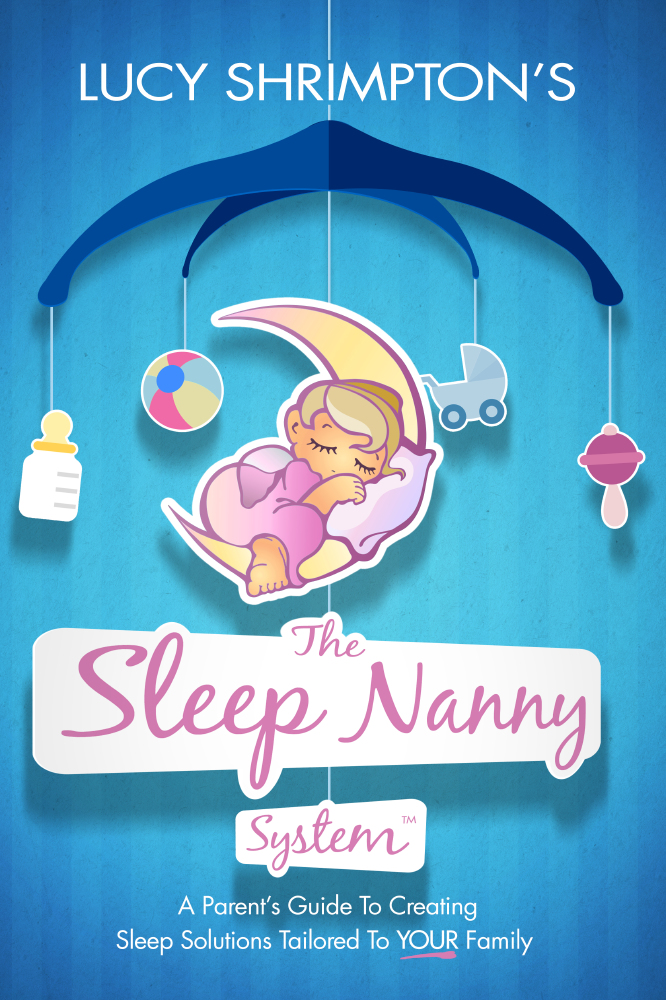Dummies and night feeds are two things we rely on as parents because they can often be the quick fix to getting our babies back to sleep but continuously replugging a dummy or feeding your baby back to sleep will prevent him from learning the essential skill of being able to settle himself.

Lucy Shrimpton
There is really no harm in giving a baby a dummy. It supports their natural reflex to suckle and is comforting to them. As long as breast feeding is established, breastfed newborns can have them too.
Using a dummy for sleep can be very helpful but it can also become a hinderance. If a baby uses a dummy as a comfort to settle to sleep, that is fine. If a baby NEEDS a dummy to get back to sleep AND needs YOU to replug it - the dummy has become a sleep crutch and you need to address this.
How can I go about actually getting rid of the dummy completely?
There is no such thing as weaning a dummy. Children rarely give up the dummy of their own accord until aged 5 or so, when school and pier-pressure come into play. So it is up to you to take action if you want the dummy to go. The only way is 'cold turkey' and often the parents are more attached to the dummy than the child because the parents' fear of the repercussions is far worse than the child's actual reaction.
If your child is old enough to understand a basic story, and even if they are not, because they will still pick up on a lot more than you realise - it's a nice idea to tell a little story about why all the dummies have gone now and they won't be here anymore and it will help to have a gift or reward for your child when you break the news for being so brave about it.
No going back - Once you make this move, you cannot go back. Not for any reason or excuse. If you do, your child will find it very hard to believe you mean it, next time you try. For you own sake, you must get shot of them all to remove all temptation of pulling one out in the heat of a challenging moment.
Understanding when and how to approach night weaning:
When?
All babies will need to be fed in the night in the early weeks and there is no particular age when your baby 'should' be able to last the night without a feed because they are all so different.
Monitor how much your baby is feeding in the night. Is it hunger or just a comfort thing?
If your baby is growing well and has no medical complications, he may be able to take on enough calories during the day to not need any at night. This could occur somewhere between 3-6 months of age.
How?
Here are five different approaches to night weaning…
1. Milk ReductionBreastfeeding mothers cut down the length of time the baby is on each breast by about 5 minutes every few nights.
Once down to just 5 minutes of feeding, cut it out altogether as it is no longer required.
Be sure to unlatch your baby when she finishes feeding heartily even if this is sooner than the allotted time and try to put her back down semi-awake
Formula fed babies will have a reduced amount of milk in their bottle every few nights until you are down to just two ounces, then stop night feeds.
2. Two-Step DropOffer just one feed at night for three nights and then stop night feeding on night 4.
Choose a suitable time for the feed such as, the first time she wakes after 3 a.m and stick to this rule, using alternative soothing techniques to tend to your baby for any other night awakenings.
After three nights of just feeding your baby one time in the night, on night four, offer alternative comfort rather than a feed.
3. Dream FeedingDream feeding works really well with sleep training because you offer your baby a feed when she is asleep, rather than responding to a cry with a feed.
You feel reassured that you know your baby has had enough calories and will not be hungry for the rest of the night which encourages you to be consistent with your soothing response to your baby's cries each and every time she wakes in the night.
4. Cold TurkeyYou can simply stop offering any feeding at night. After the last feed of the day, you 'close up shop' until morning (after 6 a.m)
If mum is breastfeeding, it may help to have dad handle the soothing in the night so as not to 'tease' your baby who will expect a feed from mum.
This method is good if you are confident that your child is not hungry in the night.
5. Gradual DecreaseIf you are not sure whether or not your baby still needs some calories in the night, you could follow the 'Milk Reduction' method above and once down to an amount that seems substantial enough, move to the Two-Step Drop' method but remain on one feed per night for a little longer if necessary.
Doing it this way is more gradual and enables you to reduce rather than completely drop night feeding for the time being.
Without needing to replace a dummy or feed your baby in the night, you will find alternative soothing techniques to reassure her while she learns how to settle. It is challenging in the beginning but stick with it and it will pay off as you'll have a baby who can sleep soundly through the night.

The Sleep Nanny System™ by Lucy Shrimpton is out now, available from Amazon priced £8.99. See http://www.sleepnanny.co.uk/

